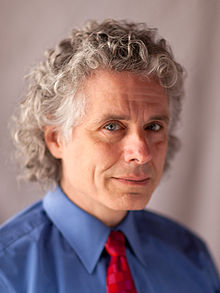
Donald Trump’s rise to power was driven in part by an apocalyptic narrative according to which, in a phrase, you are in grave danger. This is consistent with many people’s intuitions about the world, given the ongoing threat of global terrorism, the US’s slow recovery from the Great Recession, and a sense that the Washington establishment is corrupt and doesn’t care about the average citizen’s needs.
By Phil Torres | MOTHERBOARD
Is Trump’s apocalypticism right? Are we living in an exceptionally dangerous period of human history? Are these the desperate times that call for desperate measures?
According to the Harvard cognitive scientist Steven Pinker, the answer is a resounding No. In his 2011 book The Better Angels of Our Nature, Pinker presents a mountain of evidence showing that violence has been declining for millennia—a trend that has continued through the twentieth century and up to the present. For example, since World War II there have been no major wars between the world’s great powers, a phenomenon dubbed the “Long Peace,” and Pinker argues that the end of the Cold War inaugurated a “New Peace” that’s marked by a worldwide decline of “organized conflicts of all kinds—civil wars, genocides, repression by autocratic governments, and terrorist attacks.”
But will this trend continue in a post-Trump, post-truth world? Pinker is clear in Better Angles that it might not—for instance, there could be accessible “weapons of total destruction” (WTDs) that precipitate a global catastrophe, or authoritarian demagogues that misuse and abuse their political power. To understand what Trump’s victory means for America and, even more, what it means for the future of civilization, I contacted Pinker via email.